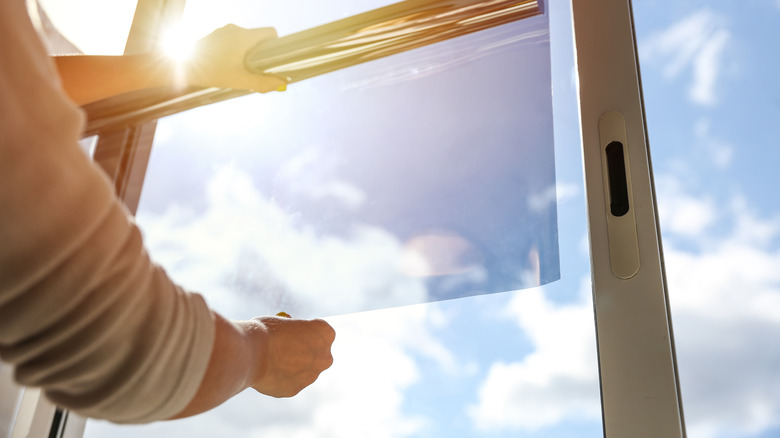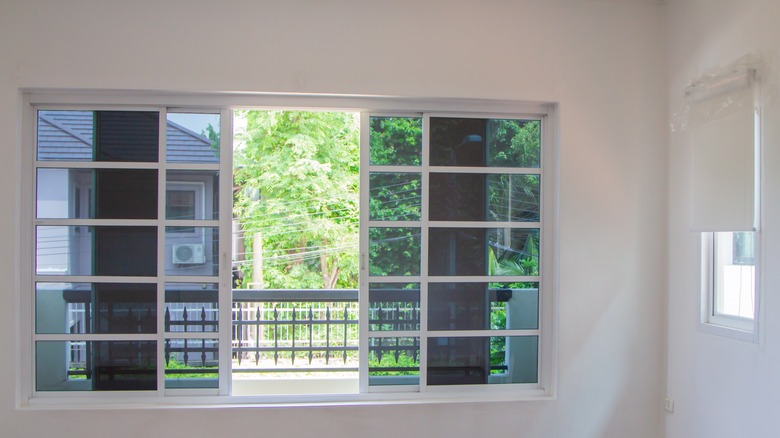Why One-Way Window Privacy Film Might Not Work As Well As You Think
Using one-way window privacy film can be a great way to create more privacy if you have glass doors or windows, while still allowing natural light into your home. Other benefits of privacy film include blocking harmful UV rays that can damage your furniture and floors and keeping your home cooler. Essentially, one-way privacy film, also referred to as mirror film, gives you all the benefits of having a bright and sunny home without the drawbacks. However, one-way privacy film does have one big shortcoming — it doesn't work at night.
Privacy window films have a reflective layer that creates a mirror effect when one side receives more light than the other. During the day, while the sun is shining bright outside, this effect is strongest, allowing natural light into the home while obscuring the view inside by reflecting the surroundings. At night, the effect is reversed. If you have lights on inside your home while it's dark out, the interior of your home will be clearly visible, and you will have an obscured view of outside. Although one-way window privacy films don't work at night, they're still a great way to maintain privacy in your home during the day while enjoying plenty of sunshine. You may just want to pair them with curtains or blinds to keep your home private at night.
Other one-way privacy film considerations
The most obvious drawback of one-way privacy film is that it doesn't work at night, but there are some other factors to also consider before installing it. For example, privacy window film may not work for you if your home is very shaded. If you have large trees, or a neighbor's house that blocks light from reaching your windows, then there might not be enough sunlight for the mirror effect to work. Installing one-way privacy film is only truly effective when your windows are receiving bright and direct light. Additionally, one-way privacy film is more effective with a darker tint, which allows less light inside. So, if you want to maximize privacy inside your home, you'll likely be sacrificing some natural light in the process.
If you'd like to enjoy natural light in your home with a bit more privacy than what one-way mirror film offers, you might want to consider frosting your windows for maximum privacy. Frosted glass offers much more privacy at night while still allowing light inside during the day, although it's still possible to see shapes and movement through frosted glass at night. While frosted glass functions better than one-way mirror film at night, your best bet for creating more privacy if you have glass doors or windows is still most likely going to be more traditional window coverings, like curtains or blinds.

